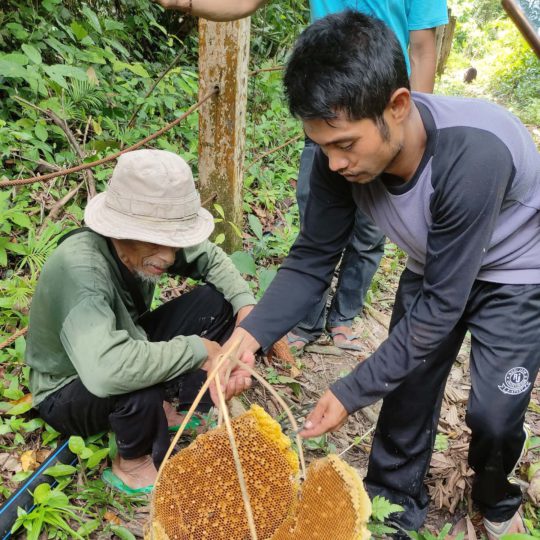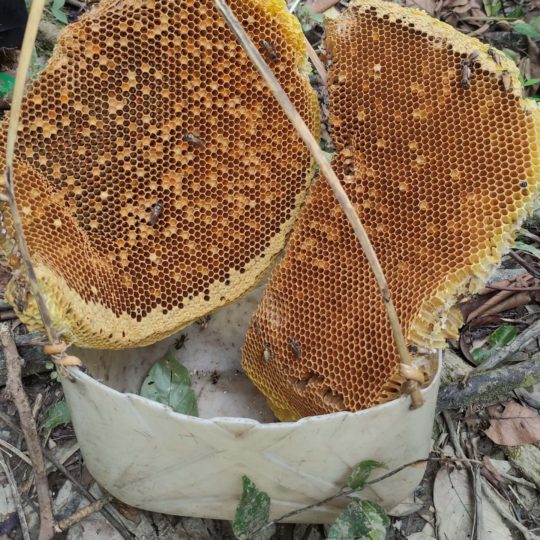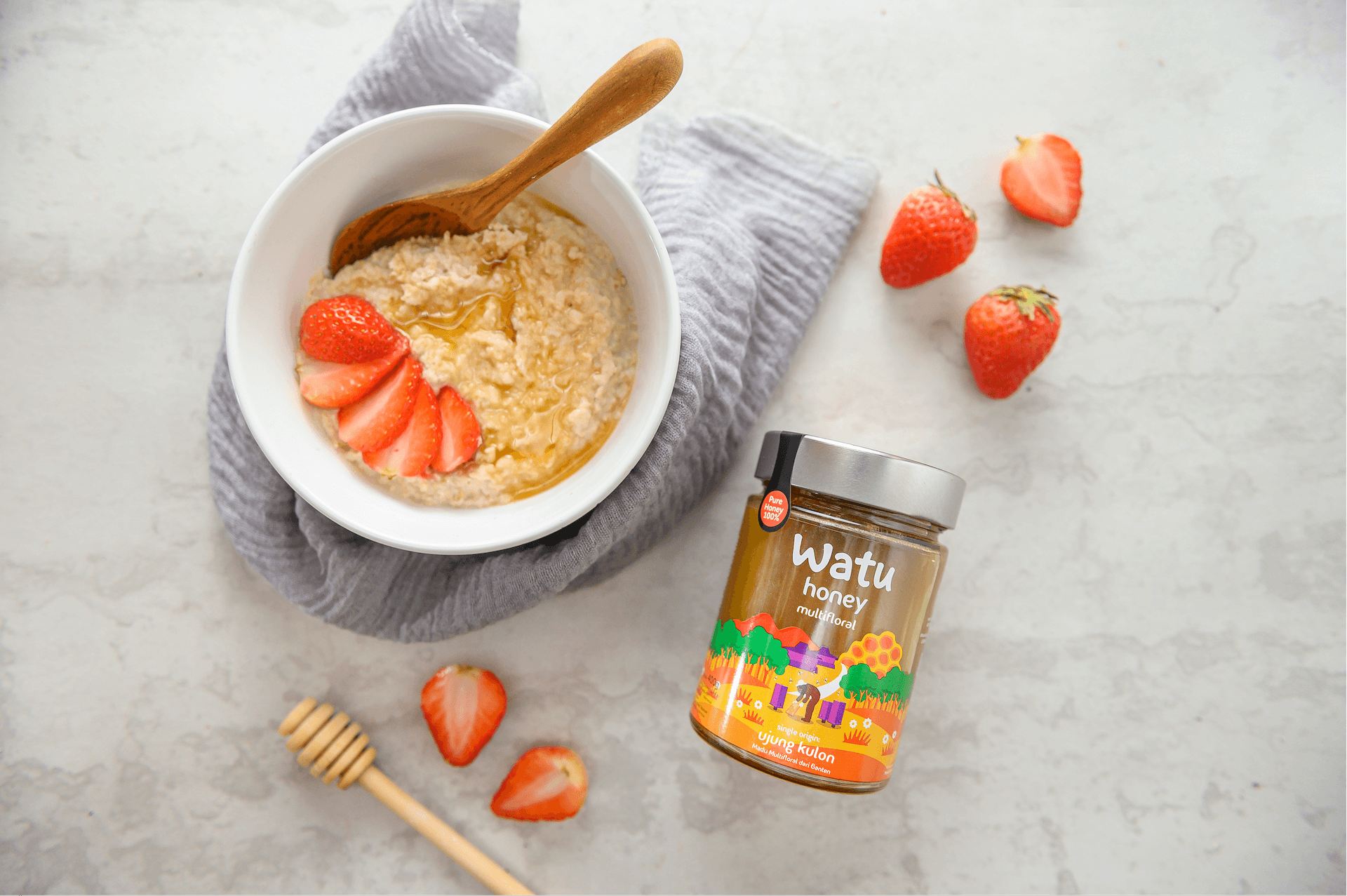Ujung Kulon National Park is a land of vast biodiversity; home to around 700 flora and 600 fauna species, with the most famous being the one-horned rhinoceros, an endemic species of the region that has become the icon of the area due to its endangered status.
The area is divided into eight zones: the core zone, the jungle zone, the marine protection zone, the utilization zone, the traditional zone, the religious zone, and the special zone. The traditional zone is the part of the national park designated for traditional use by the local community.
Due to its biodiversity, the people of the area rely on forest products for their source of income. One of which is forest honey. This honey is made with the nectar of the Tongtolok tree flowers (Pterocymbium tinctorium), which are abundant in the area.

At Talasi, we believe in making a difference at the Origin, and this value is also applied to our partnership with the bee farmers of Ujung Kulon National Park. We are committed to making their premium product accessible to the market while empowering the community with the necessary knowledge, skills, and tools to utilize their natural resources.
Moreover, we also strive to run our partnership based on Talasi’s five E’s. It means that our operation is run within the framework of a sustainable supply chain and ethical practices. In doing so, we hope to enhance the community’s livelihood, creating a higher and more stable income for them, while maintaining nature simultaneously.
It all started in 2008 when Pak Eman and Kang Irwan established Hanjuang cooperative as a collective merchant in Ujung Jaya Village in Ujung Kulon. The village community runs a program called Hasil Hutan Bukan Kayu (HHBK), which means Non-timber Forest Products. This program was initiated to maintain the ecosystem surrounding Ujung Kulon National Park.
Today, at least three parties are involved in the whole production process in Ujung Jaya Village. Perhimpunan Hanjuang Mahardika Nusantara (PHMN) is responsible for developing Non-timber Forest Products around the area. Kelompok Tani Madu Hutan Ujung Kulon (KTMHUK), the local farmer’s collective, focuses on biodiversity, organic farming, advocacy, and the development of the local economy based on sustainability. The Hanjuang cooperative, on the other hand, is responsible for the whole marketing, supply chain, capital raising, and capacity-building processes.

When harvesting the honey, the bee farmers leave 20 to 30 percent of the honeycomb to maintain sustainability. They also plant nectar trees around the area to provide feed for the bees. The honey harvested is then collected by KTMHUK to be weighed and labeled before being sent to the Hanjuang cooperative for further processing. The end product is then distributed to resellers and consumers.
All that long process and hard work by the local community result in one of Talasi’s signature products: Watu Multifloral Honey – Origin: Ujung Kulon. This honey is yellowish in color and dominated by a luscious taste with a fruity hint of ripe pineapple end note. The purity of each batch is ensured using Carbon Isotope Analyzer, making it 100 percent pure honey.

We are proud to have this partnership with the bee farmers at Ujung Kulon National Park. Go ahead and support Talasi in building an honest and sustainable economy at the Origin through our Watu Multifloral Honey – Origin: Ujung Kulon, a high-quality and pure natural honey that is sustainably produced and harvested by the good people of Ujung Jaya Village.